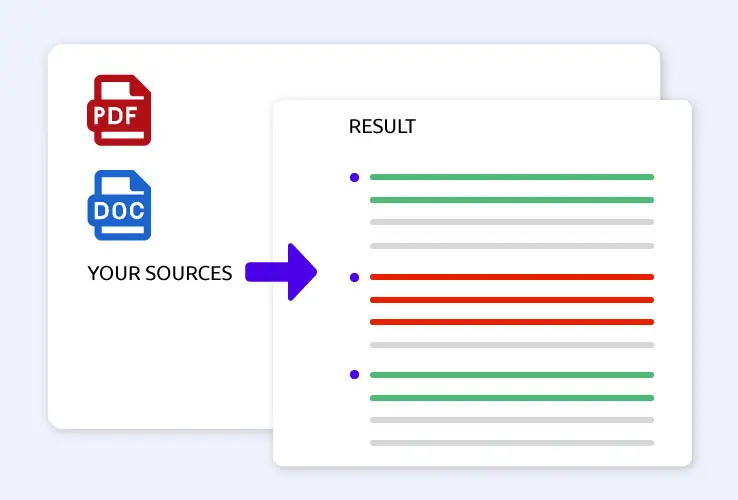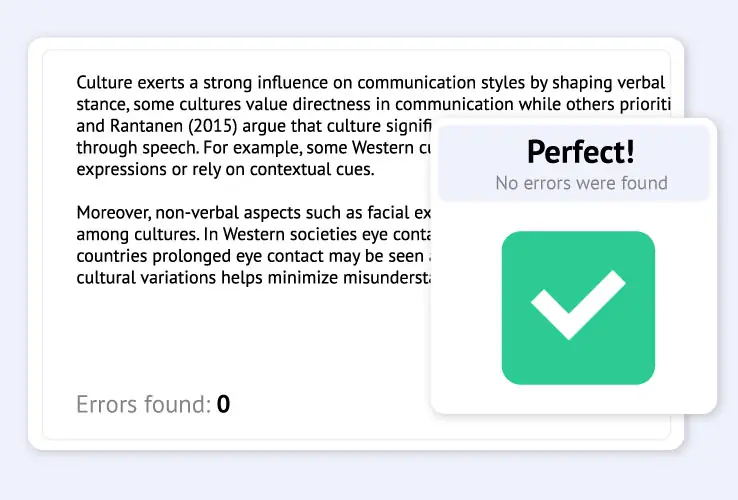
Grammar, Spelling, Punctuation
Cover all your bases, starting with eliminating mistakes, misspellings, and typos — we catch ‘em all. Nobody will notice how good your ideas are if the text is impossible to read, so make sure to check it with AHelp.

Suggestions for Better Style
Speaking of, our Online Grammar Checker does more than just, well, check grammar: our Advanced mode analyzes your text to provide stylistic corrections for improvement. Make sure you pick out the best synonyms so your writing is flowing smoothly.

User-Controlled Editing
We accommodate all editing habits. Work directly in text or the separate input box. Approve or ignore our suggestions one by one, or click to resolve all issues instantaneously. Easily see the exact changes you made and reverse them at any time.
Benefits of AHelp Grammar Checker

Work Where You Please
Writing assistance is on the tab 24/7 no matter where you are online with AHelp free Chrome and Edge browser extensions.

Advanced Mode Available
Fix double negation, agreement errors, lack of clarity, and word confusion. Control repetition, wordiness, and semantics.

Multilingual Use
Edit text in UK and US English, Spanish, Portuguese, German, Italian, French, Dutch, Japanese, and Korean.

Convenient Upload
Need a PDF grammar checker? No need to switch software: we accept PDF, DOC, DOCX, RTF, ODT, and TXT file formats for upload.
How Does Our Free Grammar Checker Work?




Get Full-Spectrum Grammatical Analysis Anywhere
Get editing help no matter where you go online. The benefits of Free Grammar Checker will follow you across platforms and devices with our free Microsoft Edge and Google Chrome browser extensions. Answering emails, captioning photos, drafting posts and documents — do it all without worrying over errors and mistakes. Be you, sound like you. We just add a little extra oomph.
How does AHelp Grammar Checker work?
AHelp Grammar Checker uses AI to scan your text for grammar and punctuation issues and looks deeper to provide suggestions for stylistic improvement. It highlights errors and offers fixes in real-time. You can type or paste your text directly into the tool or upload a document. Our Checker is a quick and reliable tool to clean up your writing.
What are the advantages of Spell Checker by AHelp?
AHelp Spell Check helps improve your writing by identifying spelling mistakes, grammar issues, and punctuation errors. It’s an easy-to-use time-saver and doesn't require an account. By providing suggestions for improvement, it helps you achieve clear and professional writing free of errors. Suitable for academic and creative needs.
Which languages can be checked for grammar using our AI Checker?
AHelp AI Grammar Checker supports 9 languages, including English, Spanish, French, and German. This allows users to ensure grammatical accuracy in texts written in different languages, making it a versatile tool for both native and non-native speakers.
Can your Grammar Checker help with punctuation?
Yes, AHelp Grammar Checker identifies and corrects punctuation mistakes, such as missing commas, extra periods, or incorrect usage of quotation marks. This feature improves the clarity and flow of your writing, making sure it adheres to standard punctuation rules.
